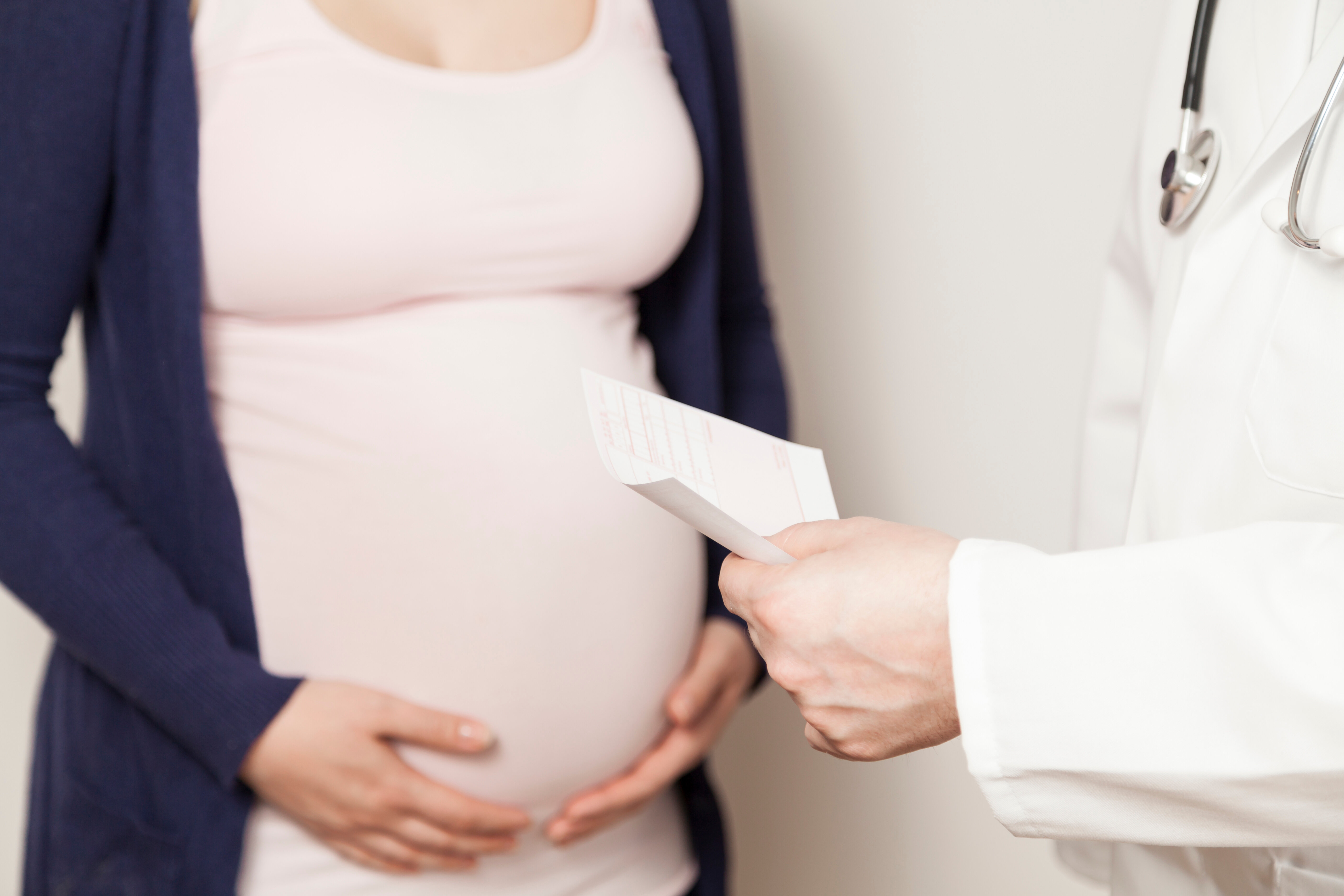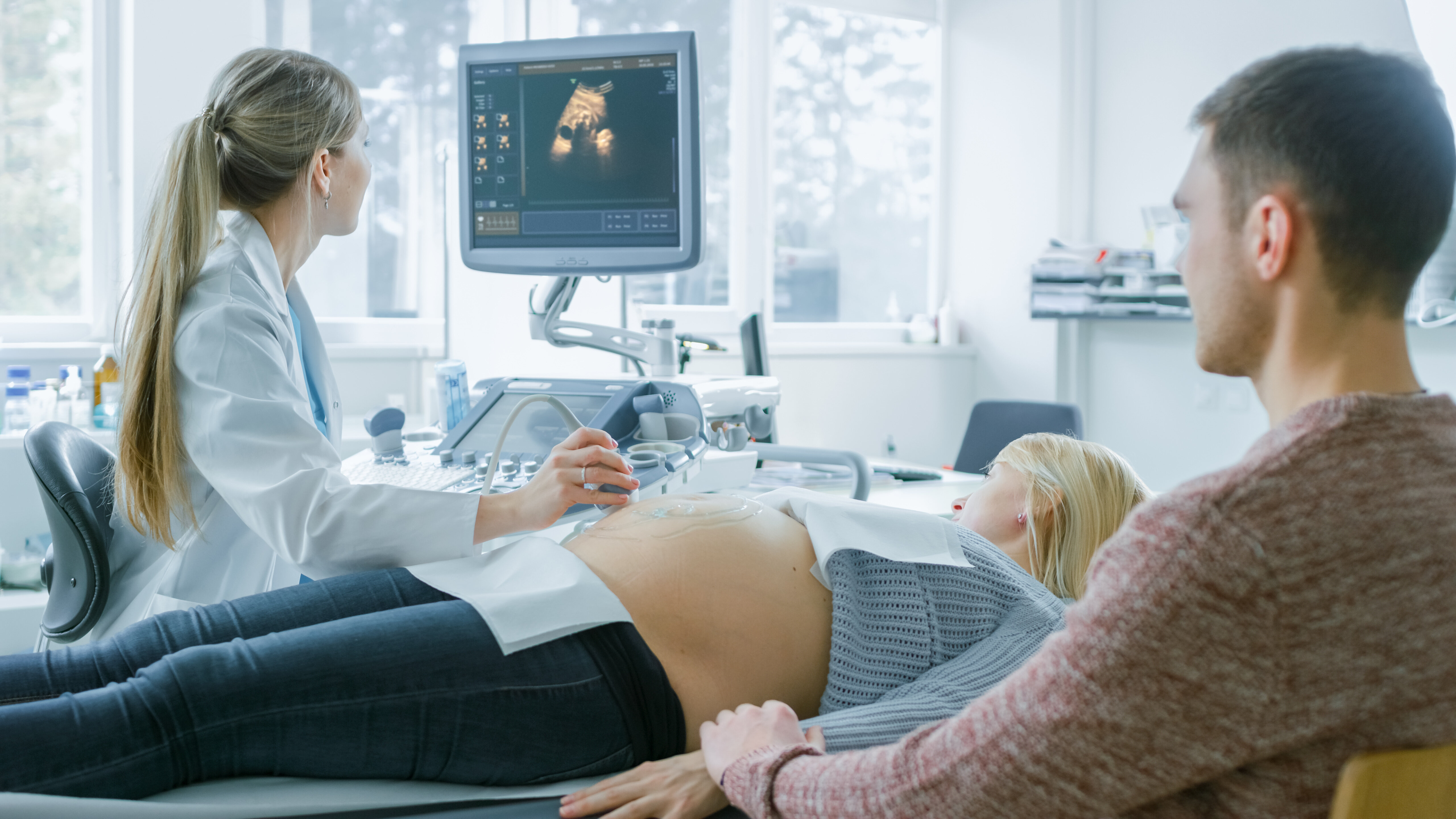Ultrasound scans are an integral part of antenatal care. In the weeks and months before birth, mums-to-be are offered routine health check-ups and several screening tests to ensure that the pregnancy goes well. This includes two ultrasound scans.
What are ultrasound scans in pregnancy used for? What happens at the 12-week scan and the 20-week scan? Are ultrasound scans safe in pregnancy? Read on as we answer all your questions about pregnancy ultrasound scans.
Table of contents
What are ultrasound scans in pregnancy used for?
How many ultrasound scans in pregnancy?
What happens at the 12-week scan?
What happens at the 20-week scan?
Are ultrasound scans safe in pregnancy?
What happens if ultrasound scans in pregnancy show an anomaly?
A final word on ultrasound scans in pregnancy
What are ultrasound scans in pregnancy used for?
An ultrasound scan uses sound waves to produce an image of inner parts of the body. During pregnancy, ultrasound scans are used to create an image of the baby in the mother’s womb.
Ultrasound scans in pregnancy are used to examine the baby’s physical development (including size and organs), determine the position of both baby and placenta (becomes relevant towards the end of pregnancy), check for multiple pregnancies and detect physical conditions and anomalies.
The appointments are part of the standard antenatal care offered to all pregnant women. In contrast to other antenatal care appointments which are usually made with a midwife or a doctor who specializes in pregnancy, the ultrasound scans are typically performed by a sonographer.

How many ultrasound scans in pregnancy?
In the United Kingdom, all pregnant women are offered two ultrasound scans in pregnancy as part of standard maternity care. The first one usually takes place between weeks 11 and 14. It is called the 12-week scan. The second one takes place somewhere between weeks 18 and 21 and is commonly referred to as the 20-week scan.
If the scans find something or if a proper scan is not possible due to the baby’s movements or position, additional scans might be necessary. So, all mums-to-be get at least two ultrasound scans.
However, it is up to the mother to decide if she wants to have the scans or not. There is no obligation to accept the offered healthcare services during pregnancy.
What happens at the 12-week scan?
The 12-week scan, also called the dating scan, is the first ultrasound scan in pregnancy. The main objective of the scan is to determine how many weeks pregnant the mother is and to calculate the expected due date.
The scan is further used to check that the baby is developing normally and that there are no development disorders such as a spina bifida or other neural tube defects. Also, if there is more than one pregnancy, the scan should reveal this.
Depending on the mother’s age, family history or other factors that can increase the risk of a chromosomal or genetic condition in the baby, the 12-week scan might also be part of an in-depth screening test for these conditions. In this case, mums-to-be are typically offered a combined test which includes the ultrasound scan and an additional blood test.
The 12-week scan usually doesn’t take longer than 20 minutes.

What happens at the 20-week scan?
The 20-week scan is the second ultrasound scan in pregnancy that is offered to all expectant mothers as part of standard antenatal care. Other terms that are commonly used to refer to the scan are mid-pregnancy scan or anomaly scan.
The scan is more in-depth than the dating scan. During the anomaly scan, the sonographer will take a close look at the baby’s:
- bone structure
- heart
- brain
- spinal cord
- kidneys
- abdomen
- face
The main purpose of the scan is to check if the baby has any conditions. In total, the sonographer checks for eleven different conditions, including:
- trisomy 18 (Edwards' syndrome)
- trisomy 13 (Patau's syndrome)
- anencephaly (improper development of the baby’s brain and spine)
- open spina bifida (a type of neural tube defect)
- serious cardiac abnormalities
- bilateral renal agenesis (no development of the kidneys)
- lethal skeletal dysplasia (abnormal bone growth)
- cleft lip (gap or split in the upper lip)
- diaphragmatic hernia (malformation of the baby’s diaphragm)
- gastroschisis (a type of abdominal wall defect)
- exomphalos (a type of abdominal wall defect)
All in all, the scan typically takes around 30 minutes.
Are ultrasound scans safe in pregnancy?
There are currently no known risks of having an ultrasound scan in pregnancy, regardless of when the scan is performed. The sound waves used during the scan are not known to cause harm to mother or baby nor are they painful.
Possible risks for the baby are, however, not the only aspect to take into consideration when it comes to deciding on whether to have an ultrasound scan or not. The main aspect to keep in mind is that the scan might reveal an anomaly or indicate that the baby might have a condition. This, in turn, might lead to difficult decisions regarding the pregnancy.
What happens if ultrasound scans in pregnancy show an anomaly?
If an ultrasound scan in pregnancy indicates that the baby isn’t developing normally or that he or she might be born with a condition, further tests are needed to get clarity. Depending on the findings of the ultrasound scan, the doctor or health professional who has performed the scan might recommend:
- having another ultrasound scan
- having another screening test such as NIPT (non-invasive prenatal testing)
- having a diagnostic test such as amniocentesis or chorionic villus sampling
It is important to remember that it is up to the mother to decide if she wants to have further tests done. In order to make an informed decision, mums-to-be should seek medical advice and gather as much information as they can about the condition and what it might mean.
A final word on ultrasound scans in pregnancy
In the UK, all expectant mothers are offered a minimum of two ultrasound scans in pregnancy. The scans take place around the 12th and 20th weeks of pregnancy, which is why they are commonly referred to as 12-week scan and 20-week scan respectively.
The 12-week scan is a routine screening test that is used to determine how far along the mother is and if the baby is developing healthily. The 20-week scan is a more in-depth examination during which the sonographer checks the baby’s body parts and organs for eleven different conditions.
If ultrasound scans in pregnancy indicate that there might be something wrong with the baby, further tests are needed to confirm the suspicion. Diagnostic tests used in pregnancy include amniocentesis and chorionic villus sampling.
















